IHC seeks Ahmadis’ population figures since 1947
Tasks deputy attorney general with furnishing details
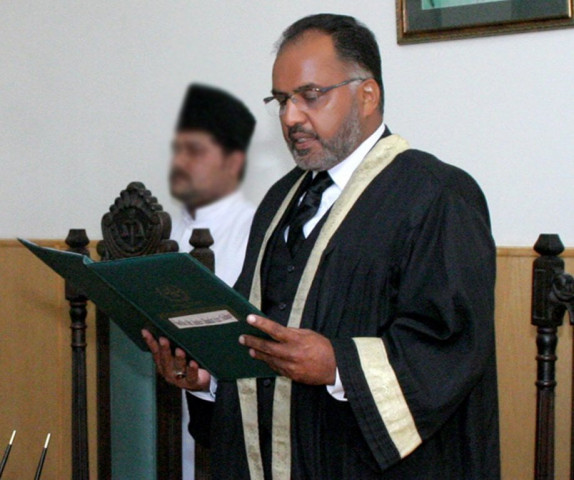
Islamabad High Court (IHC) Justice Shaukat Aziz Siddiqui. PHOTO: MUHAMMAD JAVAID / EXPRESS
Justice Shaukat Aziz Siddiqui ordered Deputy Attorney General (DAG) Arshad Mehmood Kayani to provide data showing the population of Ahmadis or Qadianis surfacing in all census exercises since 1947, till the last one that concluded in 1998.
“It has been informed that the compilation of Census 2017 is not complete, but on the formula adopted for counting population, the tentative figure may also be placed,” the court order read.
Woman approaches IHC with sex-change petition
On an earlier hearing, the DAG had informed the court that data of recently concluded census was being complied and might be finalised by the end of April 2018. However, the Census 1998 figures were provided to the court, according to which the population of Qadianis or Ahmadis was 286,212.
Justice Siddiqui had noted that the figure showed a huge difference from the data earlier provided by the National Database and Registration Authority (Nadra).
Nadra had informed the court that just over 167,000 Qadianis were registered in Pakistan and 10,205 changed their religious status from Muslim to Qadiani.
Meanwhile, in compliance with the court’s March 5 order, Kayani submitted record pertaining to the step-by-step procedure adopted for introducing and approving the Elections Act, 2017 before the court on Tuesday.
Justice Siddiqui, however, noted that the details about senators who attended the 267th session on September 22, 2017 were not attached. Subsequently, the court directed the DAG to contact the Senate secretary and ask him to provide the missing details pertaining to the session.
On March 5, Justice Siddiqui had directed the federal government to provide information on when the decision to enact Elections Act, 2017 was taken and by whom; who prepared the draft bill; and what are the particulars of the committee consisting parliamentarians, experts, secretaries etc.
In addition, the court sought details as to who accorded approval to the draft bill; on which date the cabinet gave its assent for the bill to be presented in the National Assembly (NA); and on which date the same was tabled before the NA.
The court asked whether the bill was carried out after some deliberations or without it, total number of NA members in attendance at the time the bill was tabled, and who voted for and against the bill.
The court also asked whether any amendment was proposed in the draft bill when it was presented before the Senate after approval from the NA; and if so, by whom; and whether any proposed amendments were carried out or not.
On Tuesday, the court noted that data pertaining to the NA was not submitted. Kayani sought one day’s time to submit the same.
The court also directed Kayani to submit by March 7 (today) the travel history of about 6,000 persons who obtained fresh passports after change in the religion column.
Earlier, the court had ordered the Federal Investigation Agency (FIA) to submit the travel history of people who changed their religious status from Muslim to Qadiani.
IHC judge seeks stay in SJC proceedings
Furthermore, the court directed petitioner Maulana Allah Wasaya to appear before it today “as some questions [are] required to be asked from the petitioner in the capacity of religious scholar and whose work on the issue is recognised internationally”.
Wasaya, through his counsel Hafiz Arfat, stated that the Elections Act, 2017 relating to provisions, declaration and oaths is against Articles 8 and 227 of the Constitution and has resulted in a serious law and order situation throughout the country.
Wasaya requested the court to direct the federation to immediately take all necessary measures for revival of all provisions which were in existence prior to the promulgation of the Elections Act, 2017 relating to Qadiani group, also called Lahori group.
Several scholars and lawyers have so far rendered their assistance as amicus curiae in the case pertaining to the controversy regarding the Khatm-e-Nabuwwat clause in the Elections Act, 2017.
Almost all scholars have informed the court that concealing real faith is a crime, cheating and fraud with the state.

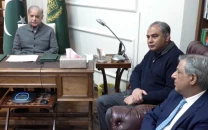

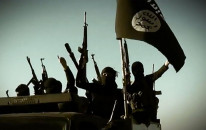
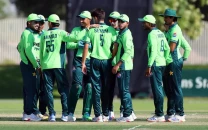






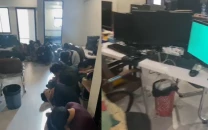







COMMENTS
Comments are moderated and generally will be posted if they are on-topic and not abusive.
For more information, please see our Comments FAQ